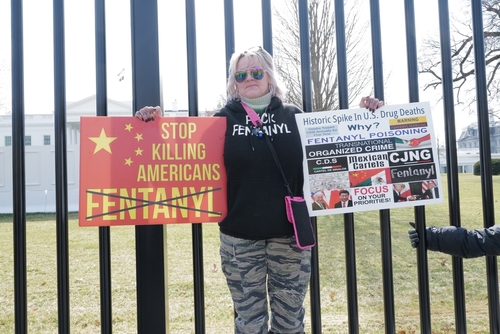
The Trump administration’s approach to drug cartels and immigration reform presents a bold plan with significant implications.
At a Glance
- The border crisis is deemed a security issue due to drug cartels, not just immigration.
- There’s an effort to designate Mexican cartels as foreign terrorist organizations (FTOs).
- Texas has taken aggressive action, including FTO designations for cartels.
- Trump’s proposals include building the border wall and enforcing deportations.
- Designation of cartels as FTOs is controversial, particularly for the Mexican government.
Drug Cartels as a Security Threat
The Trump administration identifies the U.S.-Mexico border crisis primarily as a security challenge, driven by Mexican drug cartels. Policies pursued focus on combating these cartels through expanded border security efforts and law enforcement measures. Notably, these include plans to reinstate construction of the border wall, intensifying deportation actions, and utilizing programs like “Remain in Mexico” to curb illegal entries.
The necessity of confronting drug cartels is emphasized by their significant role in the opioid epidemic. Cartels are responsible for manufacturing and trafficking fentanyl, a substance linked to widespread overdose deaths across the U.S. They import precursor chemicals from China, producing deadly opioids smuggled into American communities.
Mexico’s Resistance and U.S. Policy Actions
Addressing the issue, some U.S. officials propose classifying drug cartels as foreign terrorist organizations. This designation would allow the U.S. government to enforce financial sanctions, restrict cartel members’ entry, and enhance legal action against individuals aiding these cartels. Texas has independently labeled cartel groups as FTOs, appealing for the federal government to adopt similar measures.
“The drug cartels are waging war on America — and it’s now time for America to wage war on the cartels,” then-candidate Donald Trump said in December 2023, and declared that his plan to fight the cartels included designating them as foreign terrorist organizations.”
The Mexican government has voiced considerable objection, viewing such a label as a violation of sovereignty. Meanwhile, Chip Roy, a key Texas representative, insists that a firm legal approach towards cartels, akin to an FTO status, is pivotal for safeguarding the nation and effecting meaningful change per Chip Roy’s official press release.
Legislative Moves and Their Impact
Under Republican leadership, both in the White House and Congress, the potential for implementing this stringent policy framework increases. The designated FTO status would bolster efforts along the border and provide authorities with enhanced tools to address the influence and operations of these dangerous organizations.
“What we need to do is make sure that legally we are approaching cartels as the dangerous organizations that they are, and I think an FTO designation is appropriate,” Texas Rep. Chip Roy said.
While implementing measures such as these could face legal challenges and international disputes, it marks a decisive step for the U.S. government in restructuring its immigration policies and enforcing a national security-focused approach in dealing with drug cartels.









